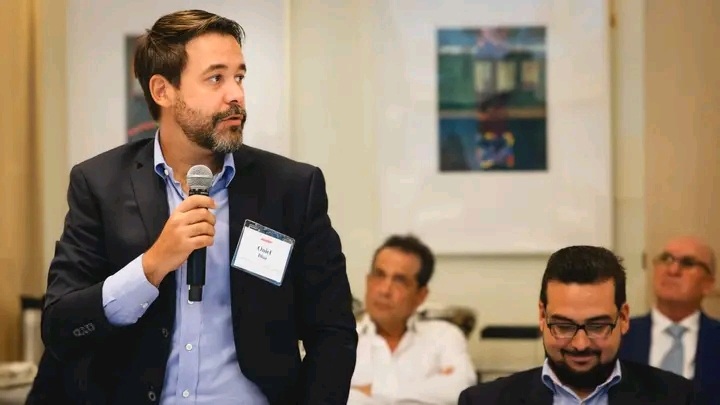
Entrepreneur considers the Cuba-US business dialogue held in Miami useful
Like everything related to ties between Cuba and the United States, the meeting between businessmen from both countries and government representatives of the northern country, in Miami, generates many opinions, entrepreneur Oniel Díaz said during a Facebook broadcast.
The co-founder of Auge, a private Cuban consultancy specialized in business development and communications, on October 6 expressed his “experiences and opinions” through that digital platform as a participant in the business event that took place in the United States.
More than 70 representatives of the island’s private sector held a first meeting in search of business opportunities and collaboration with American counterparts, on September 26 and 27, in Miami.
In his talk, which lasted almost an hour, Díaz made sure to separate the business meeting from what happened afterwards: the meeting of some participants from Cuba with a citizen of Cuban origin linked to terrorist events.
The person referenced is Santiago Álvarez Fernández Magriña, who intervened in the invasion of Playa Girón (Bay of Pigs) in 1961, and considered the intellectual author and financial benefactor of terrorist and vandalism acts against the island.
The meeting
The meeting between members of the business community of both countries, convened by the Cuban MSME Evexcon SRL – organizer of business meetings – which took place in June 2022, in Punta Cana, Dominican Republic, with the attendance of 96 representatives of the Caribbean nation.
Among those who collaborated to make the recent meeting in Miami a reality was former congressman Joe García, interested in bringing the business communities of both countries closer together, and the American law firm Akerman LLP.
Regarding the Cuban delegation, Díaz clarified that “it was not a rigged selection” since it included ventures not only from Havana, but also from all parts of the country, including women entrepreneurs.
Cuban MSMEs represented the sectors of agribusiness, import and marketing of products, information technology, services, construction, renewable energy, cosmetics, textile clothing and other manufacturing.
This meeting took place a few days after the media reported possible measures by the Joe Biden administration to favor the private sector in Cuba (opening of accounts in US banks, authorization of U-turn transfers and elimination of access restrictions to online platforms).
However, officials from the Department of State, the Department of Commerce and the Office for Foreign Assets Control limited themselves to explaining to the Cuban side the licenses that, despite the blockade, make certain imports and exports possible, in addition to other operations.
Evaluations
Díaz described the exchange as “useful and fruitful” as it opens the possibility of establishing business and alliances with the Cuban-American community.
He said the event program included panels on policies towards the island, trade, the private sector and sanctions.
“When talking about business and trade between Cuba and the United States, it is impossible not to talk about sanctions, not to talk about the blockade, because both (issues) lay the foundations on which economic actors relate,” he noted.
Likewise, he explained that although there are spaces to obtain licenses to trade with Cuba, “American companies ask for permits for fear of fines and sanctions.”
As a disadvantage for Cuban private sector businesses, he mentioned the fact of being in “a country included on the list of sponsors of terrorism,” by decision of the United States government.
In this regard, in statements to the press about the event, he also warned of the negative impact of the politicization that usually occurs in Cuba’s private sector.
On the other hand, he referred to the problems of the exchange market on the island for the support and development of emerging economic actors.
Epilogue
After two days of exchange, the Cuban delegation participated in a reception where the topics analyzed at the event were deepened, Díaz pointed out in his talk on Facebook.
The businessman who returned to Cuba on the 27th and did not participate in visits to companies in Florida, believed that the meeting with Fernández-Magriñá “should not have happened.”
In Díaz’s opinion, “under no circumstances can Cuban MSMEs be linked to a terrorist and with agendas that aim to subvert the legal order of the country.”

